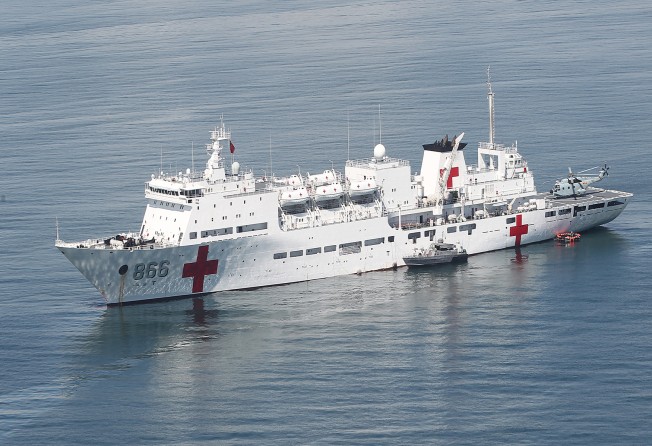Why China can't match the US in mission to typhoon-hit Philippines
Stefan Soesanto says China lacks military capacity of US in relief efforts

Media outlets across the globe have hammered Beijing over its initial "insulting" US$100,000 emergency aid contribution after Typhoon Haiyan devastated the Philippines. China has since raised its commitment to US$1.6 million while sending the Peace Ark, its first and only hospital ship, to the stricken nation.
But the international narrative remains unchanged. Analysts are still weaving China's perceived humanitarian inaction into a wider web of issues encompassing regional territorial disputes, the US pivot to Asia and a great-power rivalry between Washington and Beijing, fuelling the image of Beijing's soft power fumble.
When Joseph Nye first coined the term "soft power" in the late 1980s, he described a phenomenon that was all too familiar to a US superpower that once put a man on the moon and maintains the strongest military force in the world. Soft power, according to Nye, was the culmination of positive incentives based on culture, political views and foreign policies that would enable a country to get what it wants not by coercion or payment but, rather, through persuasion.
Critics have long described soft power as an elusive concept that could not be measured or harnessed to support national interests, and thus remains largely ineffective in a world driven by military and economic might. Yet, time and again, soft power has become highly visible on the global stage.
The vehicle for soft power in the context of the Philippine tragedy is grounded in a set of moral values based on unconditional relief aid and the capability to disperse humanitarian resources through complex logistics to reach the millions in need.
Apart from international non-governmental organisations and the UN, there are truly only two organisations with the infrastructure and assets to manage a maritime relief operation on such a massive scale: the US Navy and the US Marine Corps.
Thus, American exceptionalism is what is keeping millions of people alive in the Philippines. While the world was still writing cheques, the US armed forces rapidly deployed the 6,200-men-strong USS George Washington carrier group, conducted hundreds of airlifts from as far as Okinawa and Hawaii, dispatched the V22 Osprey tiltrotor aircraft that can penetrate areas inaccessible to fixed-wing planes, and sent to the Philippines the USS Freedom, the newest addition to the navy's growing fleet of littoral combat ships equipped for humanitarian missions.
China does not have such military assets in its arsenal, nor does it have the logistical capabilities to execute an effective maritime humanitarian operation on this scale.
Thus, the real story is not about China's supposed reluctance to aid the Philippines, on foreign policy grounds, but the fact that it is unable to help the stricken nation.
As a result, there was never a real soft-power competition for the hearts and minds in the Philippines. Washington is clearly dominating the show.
Policy calculations in the White House are not made on the basis of cold-hearted strategic diplomacy or to showcase the US pivot to Asia, as most analysts would have us believe. President Barack Obama put it in the right terms when he said that "one of our core principles is when friends are in trouble, America helps".
This is America's culture, political view and foreign policy acting in a concerted effort to do what others cannot. Some say this is the hallmark of soft power, but all I see is a superpower at work.
Stefan Soesanto is a non-resident James A. Kelly Fellow at Pacific Forum CSIS